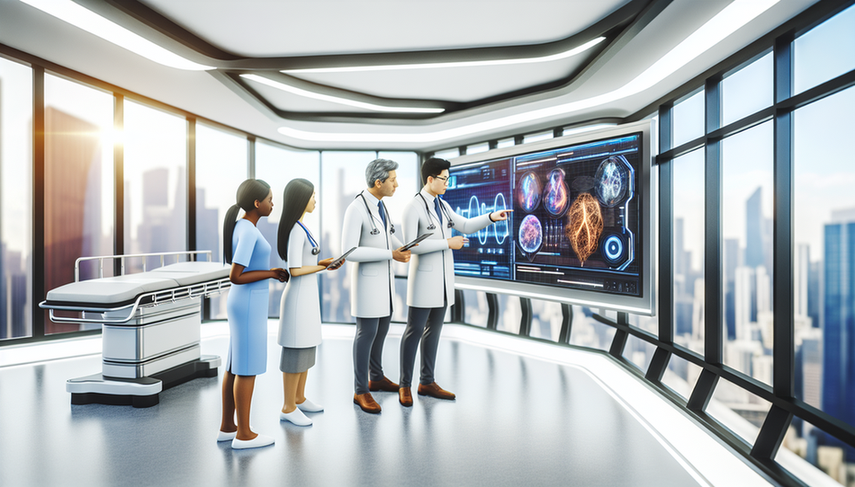Key Challenges of AI in Medicine: Bridging the Technological Gap and Enhancing Medical Training for Health Advancements

Artificial intelligence (AI) is rapidly transforming the landscape of modern medicine, offering unprecedented opportunities to enhance diagnosis, treatment, and healthcare management. However, the adoption of these technologies in hospitals faces several challenges, ranging from the technological gap to the adequate medical training of healthcare professionals. In this article, we will explore these challenges and how they can be addressed to maximize health advancements.
Challenges and Opportunities of AI in Medicine
The implementation of AI in the medical field is not without obstacles. One of the primary challenges is the technological gap, which refers to the disparity in access and the ability to utilize advanced technologies across different regions and healthcare systems. For instance, in countries like India, despite its technological potential, significant barriers must be overcome to effectively integrate AI into healthcare [1].
Moreover, medical training is crucial to ensure that healthcare professionals can use these tools ethically and effectively. The early inclusion of AI and machine learning in the medical curriculum can support student-centered learning, but it requires specialized training to bridge the gap between medical practice and technological innovation [2].
Another important aspect is the need to preserve critical thinking and human interaction in healthcare. AI can redefine the roles of stakeholders in medical education and healthcare, but it is essential to reevaluate interpersonal relationships to enhance the quality of care and protect the well-being of all involved [2].
Conclusions
The integration of AI in medicine presents both challenges and opportunities. Overcoming the technological gap and providing adequate medical training are essential steps to ensure that AI advancements translate into tangible improvements in healthcare. By addressing these challenges, we can harness the potential of AI to transform medicine and improve health outcomes globally.
Referencias
- [1] India's Potential as a Leader in Cancer Care Progress in the Future: A Synthetic Interdisciplinary Perspective
- [2] AI's pivotal impact on redefining stakeholder roles and their interactions in medical education and health care
Created 20/1/2025
